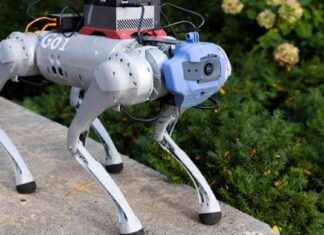The letter is full of the mother of the child with the needs especialesLa genetic influences rather than environmental factors in the emergence of the autismoAltas capabilities: when a student is intelligent is a problem
Gey Winepress, the author of the program of social inclusion “Playgrounds and parks dynamic”, has warned that exclude children with special educational needs can lead to a situation of bullying . In fact, he says that “pupils with Autistic Spectrum Disorder (ASD) is more likely to suffer harassment in their lives.”
Lagar, in an interview to the Ep, makes it clear that there can be distinctions between the children, as has recently occurred in some camps, where they were expelled a number of children having ASD.
The idea of this program, which was born some years ago and has spread to schools, pre-schools and institutes across the uk and outside of national borders, it is of social inclusion but through the game in the form of two variables. “That is to say”, explains the expert, “in an educational context, such as the school yard, and leisure time, as could be the game of the family, associations, camps, or activities of the municipal councils, among other things.”
The game as a tool inclusive
it Is, he says, “to put into value the game as a tool for inclusive, such as a force so natural as you play, that makes us all participating, all of us to be present and enjoy the game.”
The program, which was born in Asturias, is aimed at the entire student body , from early childhood to Secondary school (16 years), and it is also applied in adult education centres and in prisons.
In the Region of Murcia there are two trainers accredited and has been implanted in Yecla, Murcia, Molina and Cartagena, among others, both in colleges and Secondary schools and through this program the teachers receive training.
however, Gey Winepress highlights the need for this training is also reaches the parents , because all that is happening “is a social problem”. “The camps have been exclusive until now and have to start to be inclusive,” argues the expert, who stresses that the inclusive society “is growing, and the professional must be formed, and if not, then you should find resources, that it is not so difficult to learn and to know.”
parents “do not understand the diversity and it is hard work and makes missing a lot recognition “. “If someone is going to make a camp or an activity with children would have to spend a few scales and see that that person can attend to anyone and is prepared,” he says.
therefore, points to the need to train both parents and teaching staff and thus among all to make more visible the diversity, which is extensive.
it Is children with difficulties eye, hearing, intellectual, ASD, attention deficit hyperactivity disorder, dyslexia, children who do not know the language and even young people with high capacities. “These little ones don’t understand what happens in the yard, do not understand the game,” he says.
life in classrooms
With this program, you can see how is the game space, how they interact, and from there “how to attract the game to the students who do not participate; selecting a series of games on the basis of the motivation of each child according to Children’s or Secondary and can be from traditional games to new games or invented”.
And that, he says, “if something brings inclusive education is that children live in the classroom with each other, because the future will be an inclusive society”.
do Not have this support for children, not adults, without life experiences , carries consequences, and the game “is the most important activity of childhood, should be an experience that will accompany you throughout life, but we get older and we stop playing”.
through the game, he says, “you learn to managing emotions , to control impulses, to respect, to wait, are lessons that also apply in the workplace.”
Join the newsletter of the Family and receive free every week in your mail our best news
Or join our whatsapp, and receive each day on your mobile the most interesting of ABC Family







